Rime is a gorgeous exploration game set in a mysterious paradise
Discover an exotic world through the eyes of a child.
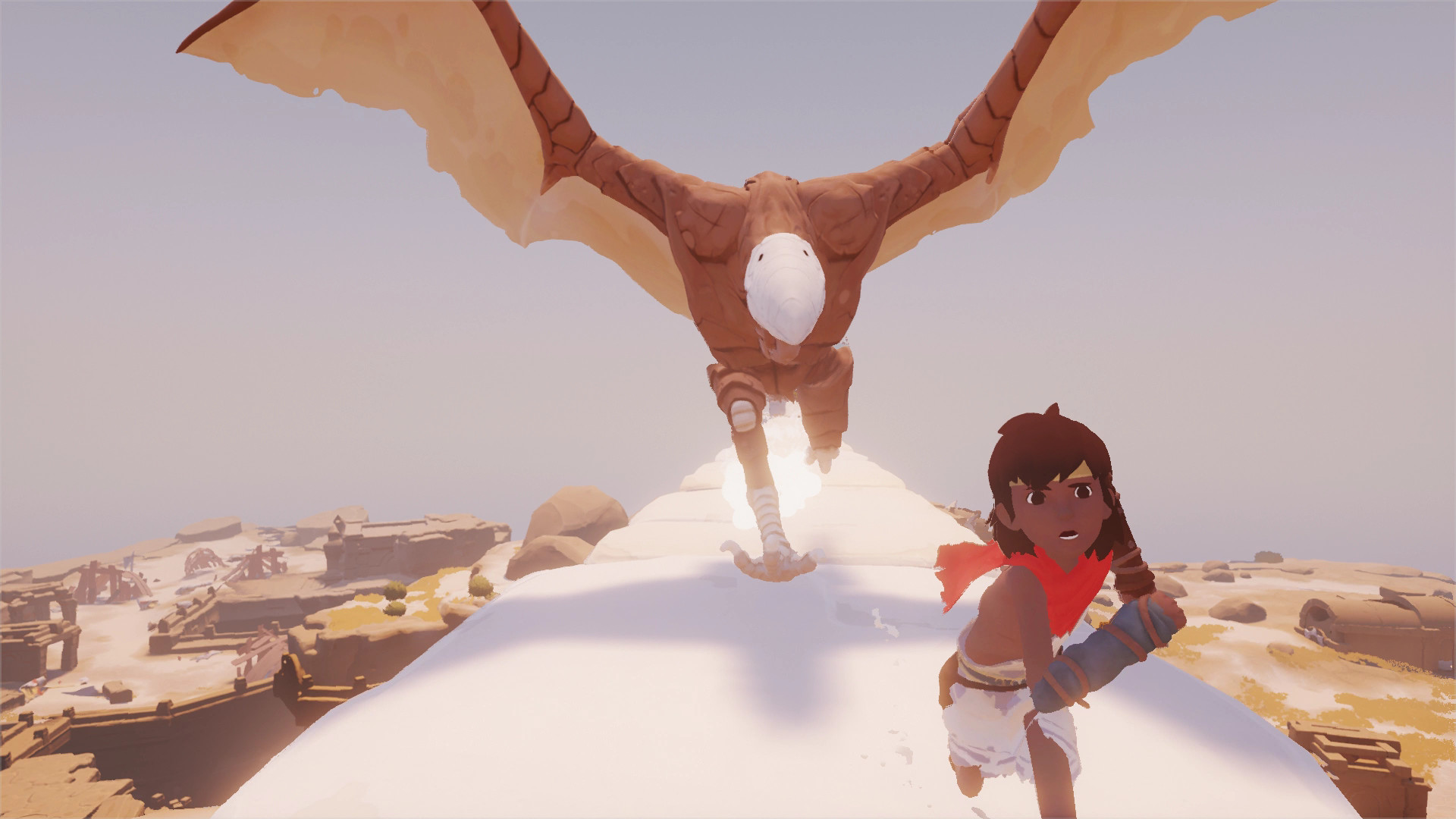
When you jump into the water in Rime’s enigmatic island, you can make the game’s cape-wearing protagonist do a cannonball. I spent a while looking for a lofty position to pull off the best cannonball possible. It was an aimless diversion that captures the spirit of Tequila Works’ striking third-person adventure. It’s what a child would have done.
Almost four years ago, Tequila Works unveiled their latest project. Rime was, at the time, a PlayStation exclusive being published by Sony. At first glance it evoked the likes of Zelda, particularly Wind Waker, and Shadow of the Colossus. And there were survival elements like the need to eat and drink. The world itself was going to be open, and the hero mostly silent. Now, only the last thing remains the same.
“We always had this vision for being able to see the world through the eyes of a child,” explains creative director Raul Rubio. “When we announced the game in 2013, at first we were delighted, but then we had a panic attack. People compared it to Wind Waker. It looked like Shadow of the Colossus. It looked like Journey. At first we were like, oh, thank you! These are huge compliments. But then it was like, wait, do people expect it to be Wind Waker? They want a Zelda? Fuck!”
There were big expectations, bold comparisons being made, but at the same time people weren’t entirely sure what you did in the game. Another trailer was released and once again the reaction was positive but Rubio didn’t feel like they were expressing their vision of the game as well as they needed to. Tequila Works went radio silent, and since 2014 they’ve made some dramatic changes.
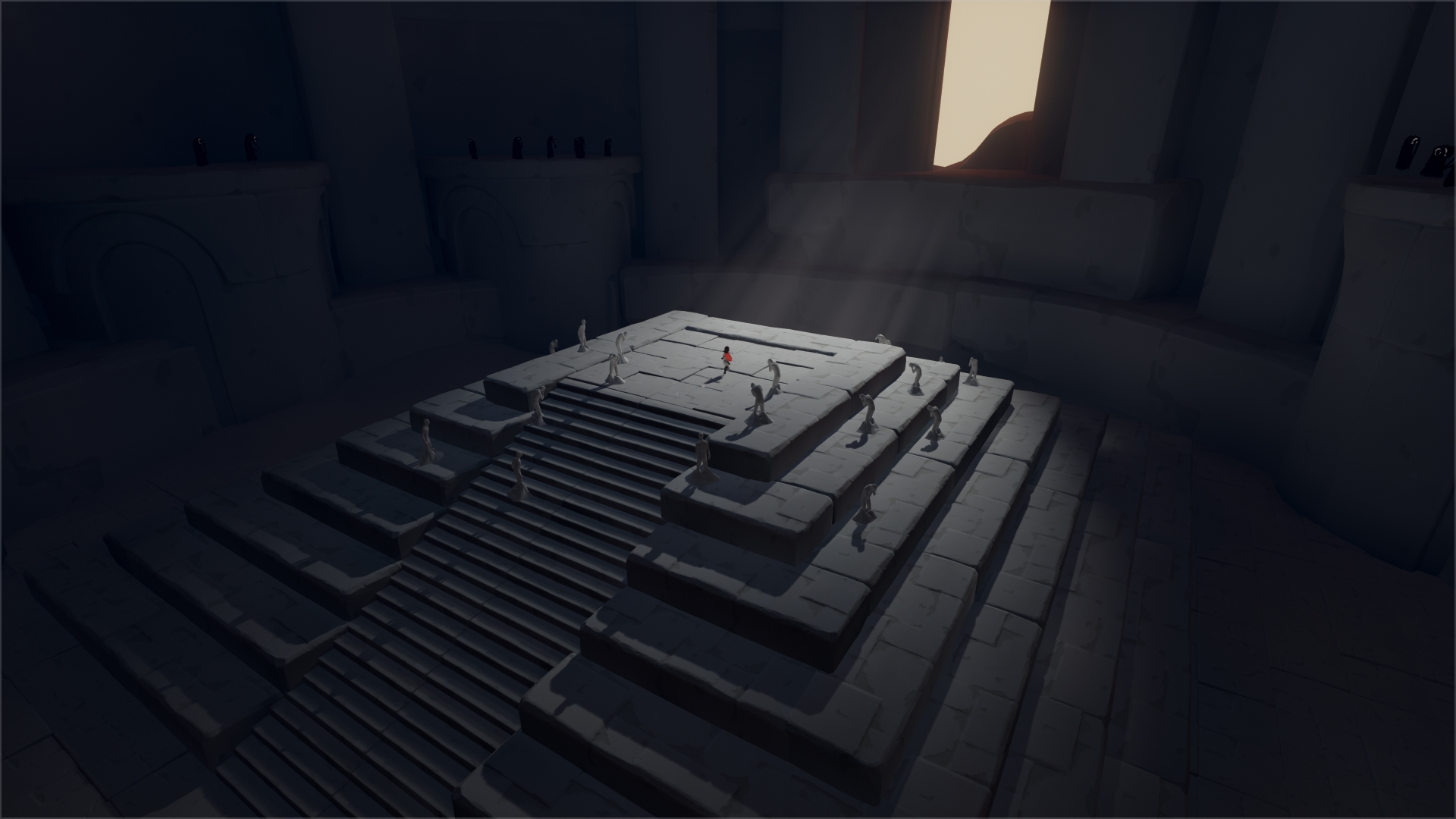
“Instead of adding, by 2014 to 2015 we were removing things from the game. It was more like a Bauhaus approach to game design, or design by subtraction,” says Rubio. “At the beginning of the project, there was a heart, telling you how much stamina and health you had. You had to eat food. You had to drink. But it was distracting. We wanted you to explore and get lost, enjoy and discover… then it was all keep eating, drink, sleep, do all this or you’re going to die. Where’s the fun?”
Without the slog of survival, you're free to investigate the island’s many striking ruins at a leisurely pace. The game’s first stage is an idyllic introduction free of danger, with plenty of puzzles to solve. These sometimes require you to use your young avatar's magical voice—he can hum and yell to activate or break objects. You can also exploit the behaviour of island creatures. Thick brambles need removing? Chase pigs and feed them fruit to make them charge through the blockage.
There are dangers ahead, but you have to handle them cleverly. For the designers, combat was never on the cards. Instead they thought about what a child would do. “I would run,” Rubio tells me. “I wouldn’t try to fight. But that doesn’t mean I’m totally helpless. Like a child, I have my ingenuity, and I can find a way… a workaround.”
The biggest gaming news, reviews and hardware deals
Keep up to date with the most important stories and the best deals, as picked by the PC Gamer team.
Rime's second stage takes a dark turn. You start in a hall, surrounded by strange spirits and statues—maybe even corpses—made out of sand. They stand still in poses that suggest pain, until you bump into them and they crumble.
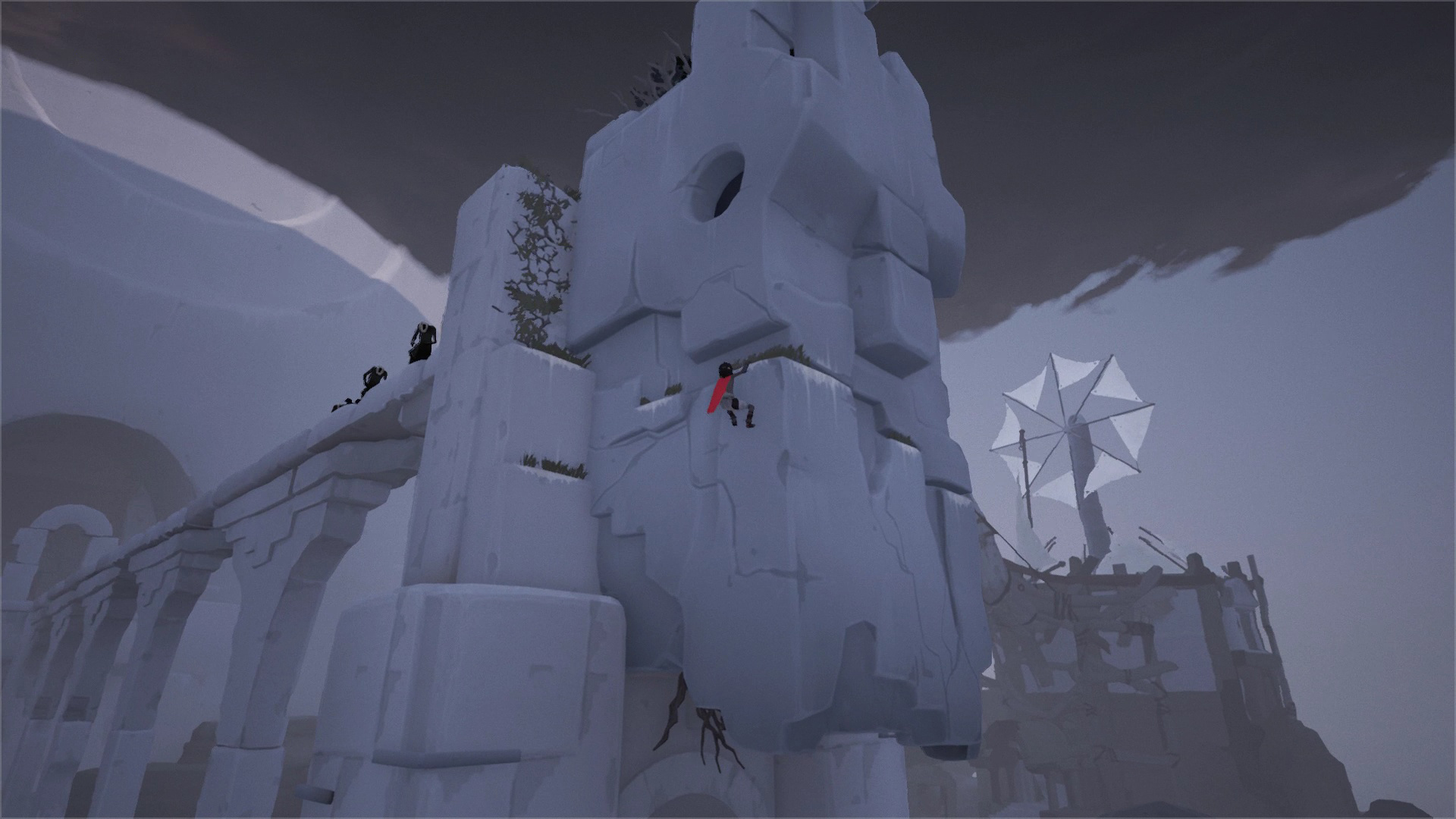
The music, colour palette, architecture—everything changes. And there’s a new threat: an avian monster who steals an important part of a puzzle. It patrols the sky attempting to eat you. Instead of fighting it, you’ve got to outsmart it. This, then, is not a battle but another puzzle. First you must figure out how to evade the bird, and then retaliate.
Without dialogue or text, Rime’s art does a great deal of the narrative heavy-lifting. The island is full of murals, statues and the detritus of a forgotten civilization, hinting at a story that, in the early stages, always feels just out of reach. These elements frequently serve a more practical purpose, too. The statues are often used in puzzles, while murals can often hide vague puzzle solutions.
“If you ignore the beautiful visuals, the graphics, the layer below that is the visual language,” notes Rubio. “It’s super practical because everything is defined by design. Like why are all the sound elements [the stuff activated by the hero’s voice] made of jade? It’s green, and the texture and material is different, and if you are colour blind, you can still understand that material is different to the others.”
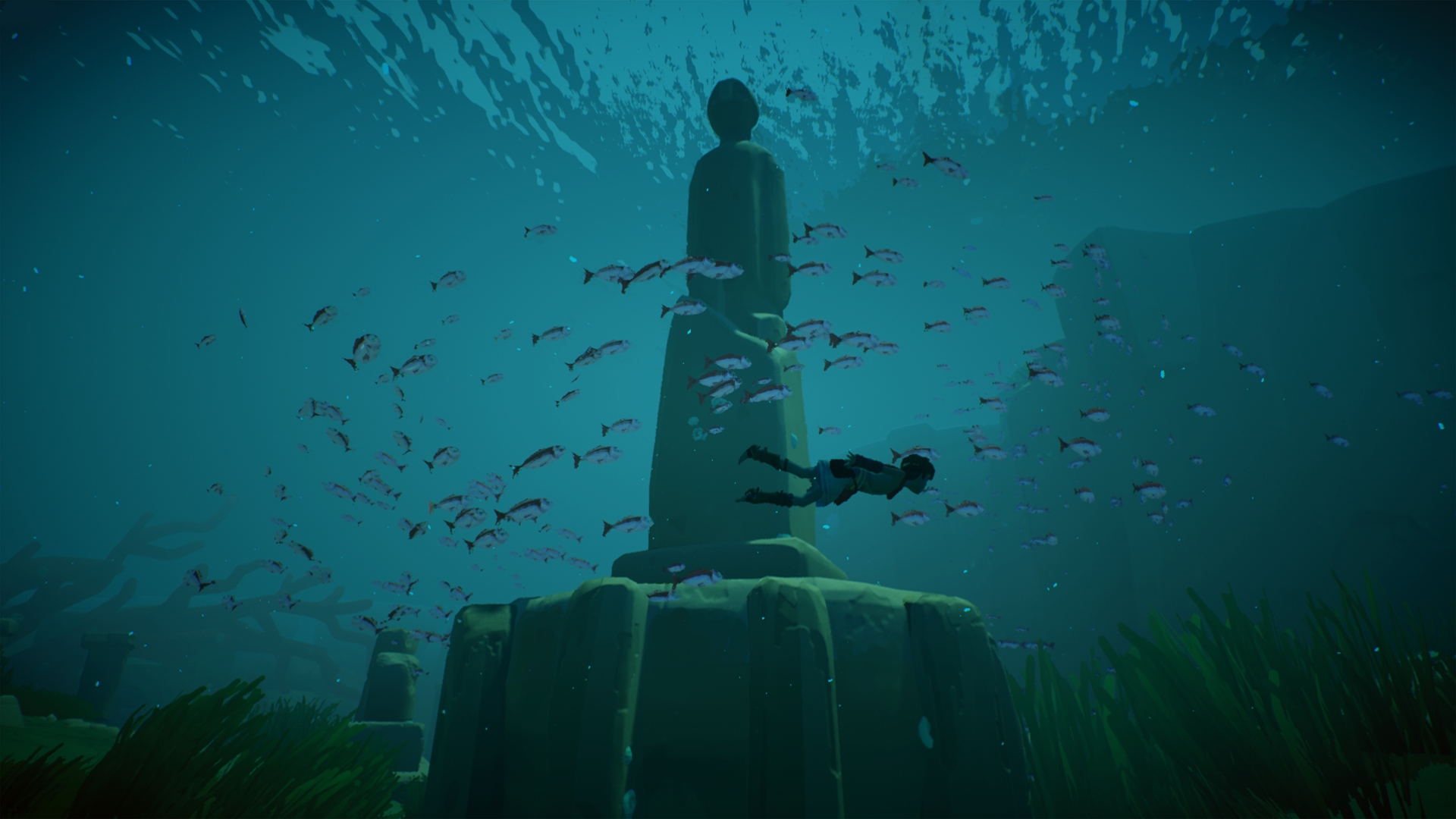
This language most commonly employs colour. Objects you can grab tend to be yellow. Ledges you can hang on or climb up are white—thanks to seagull poo, unfortunately. Other subtle elements act as guides, nudging you forward. There’s a fox who will often appear when you’re lost, barking and calling for you, but she’ll also vanish for various reasons, like the aforementioned bird, leaving colour and art to keep you on the right path.
Since nothing is explicit, the developers needed to reevaluate what puzzles would work well with these limitations. “As game designers, we had to go against our rules,” Rubio explains. “It might be a good puzzle design, but is it a complete experience for someone who is going to get no tutorial, no dialogue, no explanation? Are they going to feel frustrated?”
With one early puzzle, a better solution appeared when a designer got frustrated with trying to quickly carry a ball over to a pedestal before the platforms sunk into the ground. In a final moment of anger, they threw the ball, which then landed right next to where it needed to be.
“It was very childish. Like when you’re a toddler and just hammering shapes into holes where they don’t fit,” Rubio says as he smacks the table. “Now it fits. This is another case of ingenuity. Breaking the puzzle, in this case, is the way to solve the puzzle.”
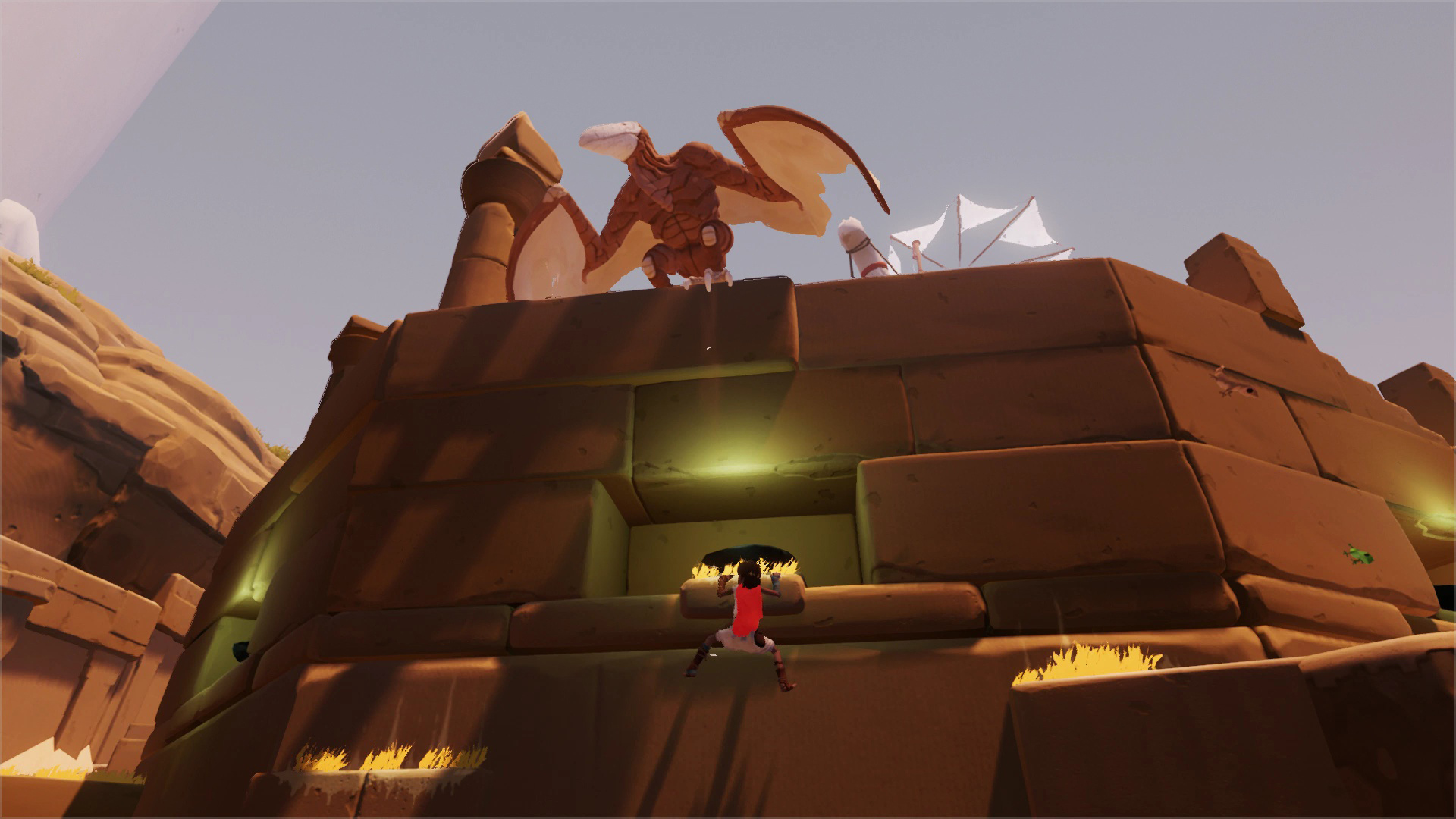
Demon’s Souls and Dark Souls have proved to be an unlikely inspiration for Rubio and his team. Not in terms of challenge, of course, since death in Rime has barely any consequences, and there’s no tricky combat, but elsewhere FromSoftware’s RPGs have left their mark.
Rime was, at one point, an open-world game, but now it has distinct stages, like Dark Souls, that are fairly open, all connected to each other by obstacle-laden paths that lead to the island’s central tower. It’s more orderly and linear than a true open world, but you can still perceive the wider world around you, seeing things off in the distance like new destinations or challenges.
There’s ambiguity to the story too. It's a mystery that’s open to interpretation. Rubio likens it to a fable, where it’s up to the player to get the message. “You can take it in a literal way, but there are a lot of metaphors.” So while the world is one we view through the eyes of a child, acting in appropriately childlike ways, there are themes at play that suggest a slightly more adult, or at least esoteric, tone.
Rime plays things so close to its chest that it’s hard to get a clear picture of it after only exploring its early stages, but it sets up a potentially fascinating adventure in a lively and utterly gorgeous world, with gentle puzzles and sublime exploration.

Fraser is the UK online editor and has actually met The Internet in person. With over a decade of experience, he's been around the block a few times, serving as a freelancer, news editor and prolific reviewer. Strategy games have been a 30-year-long obsession, from tiny RTSs to sprawling political sims, and he never turns down the chance to rave about Total War or Crusader Kings. He's also been known to set up shop in the latest MMO and likes to wind down with an endlessly deep, systemic RPG. These days, when he's not editing, he can usually be found writing features that are 1,000 words too long or talking about his dog.